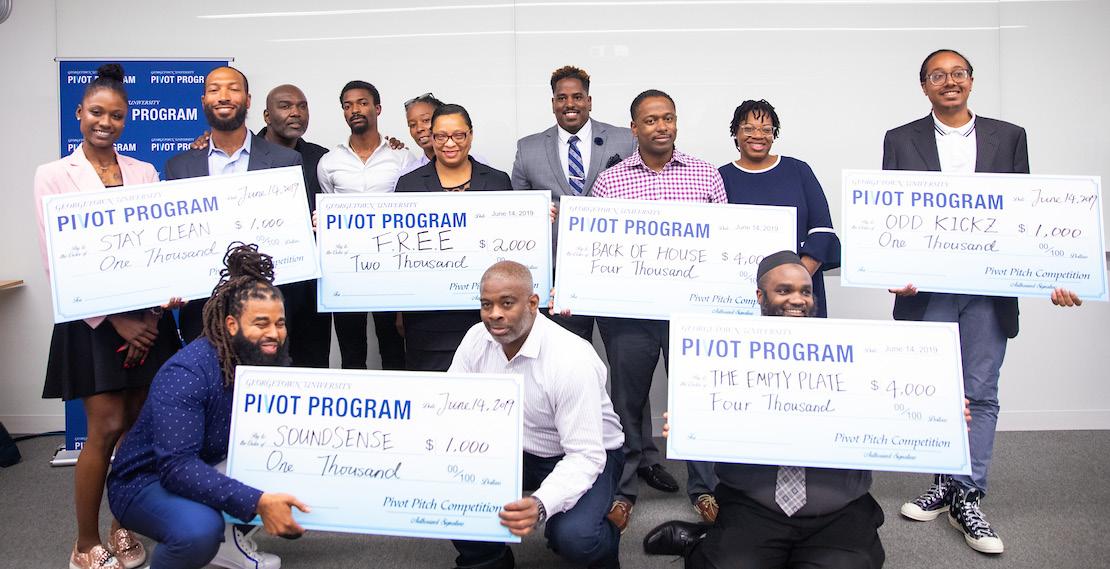
2 minute read
Creating Second Chances
The Pivot Program joined the Second Chance Business Coalition (SCBC), a cross-sector group of large employers committed to expanding hiring and advancement practices within their companies for people with criminal records. The newly formed SCBC promotes the benefits of second-chance employment and provides major employers with a set of tools, relationships, and expertise to successfully hire and provide career advancement and greater economic opportunities to people with criminal records. “The creation of the coalition underscores the need for businesses to make good on their pledges to build a more inclusive workforce,” said Alyssa Lovegrove, academic director, Pivot Program. “We are excited to partner with other organizations on solutions that create more hiring and career advancement opportunities for people with a prior criminal record.” Approximately 70 million Americans have a criminal record. Research shows that individuals with a conviction history often experience significant collateral consequences as a result, including barriers to employment and a lack of opportunities to advance professionally. For example, a criminal record alone can reduce the chances of a second interview by 50%. With labor markets tight and employers struggling to find qualified candidates for open positions, secondchance employment programs provide companies access to new sources of untapped talent. The SCBC is co-chaired by Jamie Dimon, chairman and CEO of JPMorgan Chase, and Craig Arnold, chairman and CEO of Eaton. In addition to the co-chairs, four other partner organizations lead the coalition alongside Pivot: the Business Roundtable, the Society for Human Resource Management, Dave’s Killer Bread Foundation, and Stand Together. There are two ways the coalition will help employers tap into a talent pool that includes nearly one in three U.S. adults who have a criminal record. First, the coalition will develop and share best practices, including learning from subject-matter experts and developing and deploying tools to improve secondchance recruitment, retention, manager training, performance, and satisfaction, as part of an inclusive workforce. Second, members will launch pilot initiatives to test new approaches to second-chance hiring and advancement practices, including through partnerships with community service organizations and pipeline providers and by utilizing metrics to guide decision-making. The program’s initiatives continue to empower companies across a wide range of sectors to make second-chance hiring part of their business models, while recognizing the unique talents and perspectives that returning citizens bring to the workplace.







